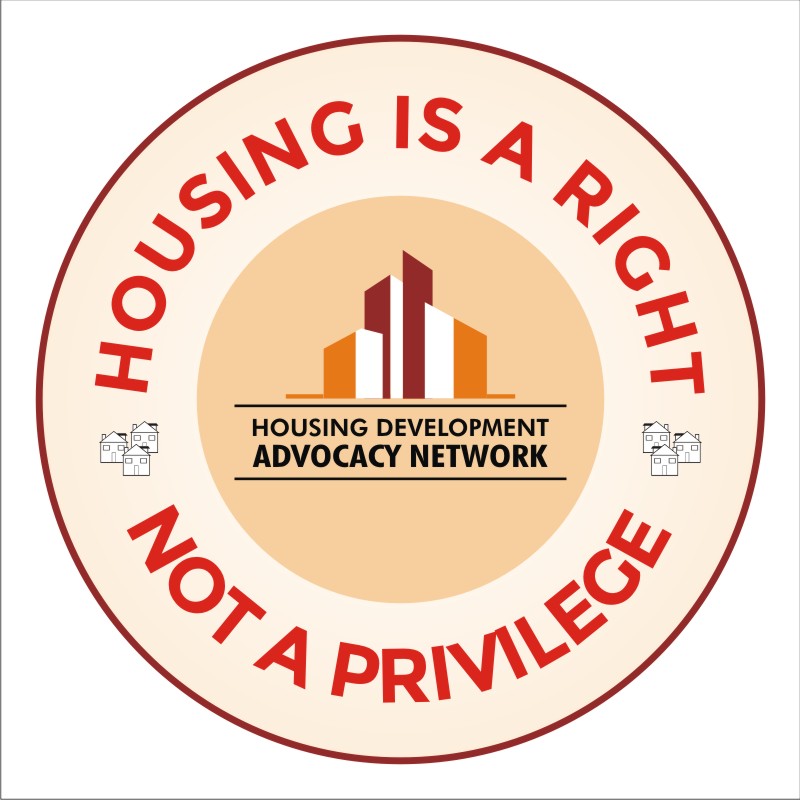What you require to look out for in your brand-new rental arrangement.
Federica
When leasing an accommodation abroad, the most important thing you'll need to do is sign the rental agreement, an important document that legally holds you and the proprietor accountable and also protects you.
However, the often-complex terms and legal lingo utilized in lease arrangements can be frustrating. It's also possible that the contract is in a different language when you're leasing abroad. This is why it's essential that you never go into a verbal arrangement with a landlord. Take your time to check out and comprehend precisely what you remain in for.
To assist you out, this article will explain about what a rental contract ought to include. This will assist make sure that there're no misunderstandings between you and your proprietor. So, let's get started!
What remains in a rental contract?
The rental contract is a legal document that consists of crucial information concerning what the lodging consists of, your obligations and rights, and prospective penalties for late payments, early leave, or destruction of residential or commercial property.
A rental contract may likewise be referred to as a rental arrangement, tenancy arrangement, lease arrangement, and so on.
Although rental agreements can somewhat differ from country to country, a lot of will consist of and require comparable parts:
- Basic info about the tenant( s).
- Contact information of the tenant and the property owner.
- Residential or commercial property description, consisting of address, functions, and inventory (e.g. furnishings or energies).
- Rental or agreement duration.
- Rent details, such as down payment, payment due date, and bank information.
- Your terms, obligations, and rights.
- Rules and terms for leasing the rental residential or commercial property.
- Clauses for terminating or extending the agreement.
- Dictionary of terms and jargon
Some renters, such as trainees, will likely require a guarantor who'll be legally responsible for payments and charges on behalf of the occupant. Some other optional provisions might include guidelines for having an animal, smoking, or running a freelancing organization from your house.

Have a look at sample rental contracts in various languages.
Here're some things you must keep an eye out for in your rental agreement:
1. Note the kind of rental agreement you're signing
There're 2 types of rental agreements. If you're going to be remaining for a specific time with a specific end date, you will normally sign a fixed-period agreement. If your plans aren't set in stone, can sign or request for an indefinite contract.
Fixed-period rental agreements consist of:
- The end date of the rental agreement.
- No early agreement terminations.
- Penalties if the property manager agrees to end the agreement early.
Indefinite rental agreements include:
- No end date.
- The agreement may be terminated by the property manager if there are legal factors.
- The time of notification need to be noted in your rental agreement - typically between 1 and 3 months.
2. Ensure all names are included
This might appear like a no-brainer to some, however proprietors may inform you that just one name is required on the lease. However, this can lead to all sorts of issues down the road.
Having one name on the rental contract means that this person's name will be on the tax slips and energy bills and that they're exclusively responsible for all payments. Plus, if you have a falling out with among your roomies or they do not pay on time, you 'd have to pay from your pocket as legally, only you'll be accountable.
It's also most likely that you'll get backdated tax slips or the last bills for energies after you move out. Locating or holding old roommates accountable after the agreement has ended can be challenging. To prevent all this inconvenience, it's finest if all names are on the lease.
3. Understand the rental payment terms
Payments need to be plainly defined in the rental contract. Always check that the rental agreement offers an in-depth breakdown of the amount, specifies when you need to pay lease, and what the consequences of late payments are.
Some agreements consist of energies, such as water, electrical energy, and internet. Whereas, others might only consist of base rent. In some structures, you might have access to features, such as a gym, or may need to pay a yearly service expense on top of lease. So if you're in doubt, clarify these before signing the contract to know precisely what you're entitled to.
4. Beware and spending plan for additional costs
You can anticipate several various costs connected with transferring. When reserving a budget plan, you may need to consist of:
Deposits
Many property managers will need that 1 or 2 months of rent be paid as a down payment. Don't stress, you'll get this back once you vacate, presuming you keep your room or house in the exact same condition as you got it in, barring general wear and tear.
Agency fees
If you choose to book through a company, you'll have to pay varying pricey costs. The reservation charges for housing platforms are usually more affordable.
Online platform fees
If you are using an online platform, you may require to pay to see listings, contact a number of proprietors beyond the totally free limitation, and for any successful reservations. Generally, the fees will be mentioned in advance so that there aren't any surprises.
To conserve some costs, you could decide for an all-inclusive housing platform, like HousingAnywhere, where you're only charged a scheduling fee which is 25% of the very first month's rent.
5. Lease arrangement terms
A rental agreement will consist of information about what can and can not be done to the residential or commercial property. For instance, if you're leasing a house and are wishing to hang art or paint the walls, be sure that your rental contract enables this or you will not get your down payment back.
Then there are generally other basic restrictions, such as no smoking or no pets. If you desire any of these, make sure to contact the proprietor before leasing!
6. Take stock of the lodging
Pay very close attention to the inventory list to understand what comes with your home. Anything not consisted of in the rental arrangement is your duty to repair or replace, not the landlords.
Don't assume that because something remains in your house, it's consisted of in the lease as often previous renters might leave furniture or devices. To prevent misunderstandings, ask your proprietor what is or isn't included as big-ticket items like a washing machine can trigger a damage in your budget plan!
The greatest pointer we can offer you is to photograph and take a video of the entire space or house that you're leasing. As a backup, save the pictures and videos to the cloud and make sure that a datestamp shows up on the file details.
You ought to likewise send out a list of any damages you've observed, including visual proof, to the proprietor on the day that you relocate. This will ensure the landlord can not needlessly charge you for damages when you move out.
7. Restrictions on behaviour
Although you will be making the house or room your new home, there'll be expectations when it pertains to your behaviour. These guidelines are typically defined in the lease contract.
Some examples of guidelines include a no noise policy throughout specific hours, no pets or smoking within your home, no cooking outside the kitchen area, and so on. If not followed, it can be a cause for expulsion.
8. What to expect from your rights and duties
The rental agreement should information whatever that is anticipated of you as an occupant, including your duties in the contract. However, it should also include your rights as an occupant, so that you know if what you're experiencing is within the grounds of your lease contract.
Tenants' rights
- The residential or commercial property needs to be all set and offered at the start of the contract.
- Housing must remain in a habitable condition.
- The residential or commercial property needs to be handed over and accepted face to face.
- Landlords must make any necessary repair work to the house or room.
- Must get a notice before the property manager gets in the residential or commercial property.
- Must be given a reason to abandon and with enough time
Tenants' duties
- Must pay the agreed leasing charges at the required time.
- Must follow all guidelines.
- Spend for any damages made to the residential or commercial property.
- Give a legitimate factor and advance notice to leave the residential or commercial property.
9. Rental arrangement terms and jargon
Last however not least, here's a handy dictionary of a few of the most typical rental terms you'll come across.
Tenant
The tenant is the individual or group of people who will be leasing the residential or commercial property. The contract ought to contain the name of all renters living on the properties.
Landlord
A landlord is the private, business or agency from which a renter rents the residential or commercial property. They might also manage the residential or commercial property themselves, or offer a representative who will be the renter's contact for repairs, etc.
Lettings firm
A letting agency can be seen as an ambassador in between the property manager and the renter. They can require costs for helping with documents or for keeping the deposit throughout the rental.
Deposit
The deposit is an established amount of cash that the occupant will provide to the property owner, who will either return the money or use it for any damages made to the residential or commercial property.
Inventory
The stock will consist of a list of whatever that is consisted of within the room or house.
Premises
A premise can consist of an apartment or condo, a house, a tract or anything else which can be defined as an area.
Notice period

A notice duration is a duration of time that starts after you have actually alerted the landlord, or vice versa, of your last day of the occupancy. This offers the landlord adequate time to find a new tenant to change you. Typically, a notification duration needs to be 30 days and needs to be issued before completion of the month.
Termination provision
These terms dictate how the occupant can break the lease or end the rental contract early.
Maintenance charges

This charge is an additional charge that the renter(s) must pay, together with the rent. For example, if you have a garden, then a maintenance fee to keep the garden in excellent condition may be required by the renter.
Sublet

Subletting a lodging implies that the initial tenant is allowing another renter to rent the residential or commercial property for a determined amount of time, with the original renter accountable for all payments. Additionally, subletting is just permitted with the expressed approval of the property manager, and it is unlawful for the rental rate to be higher than the initial quantity set by the proprietor.
A lot enters into discovering the right accommodation and making sure that the rental agreement includes all of the essential elements. Just make certain to cover all of the basics, check out all of the fine print and you'll have the ability to enjoy your brand-new home in no time at all!

















